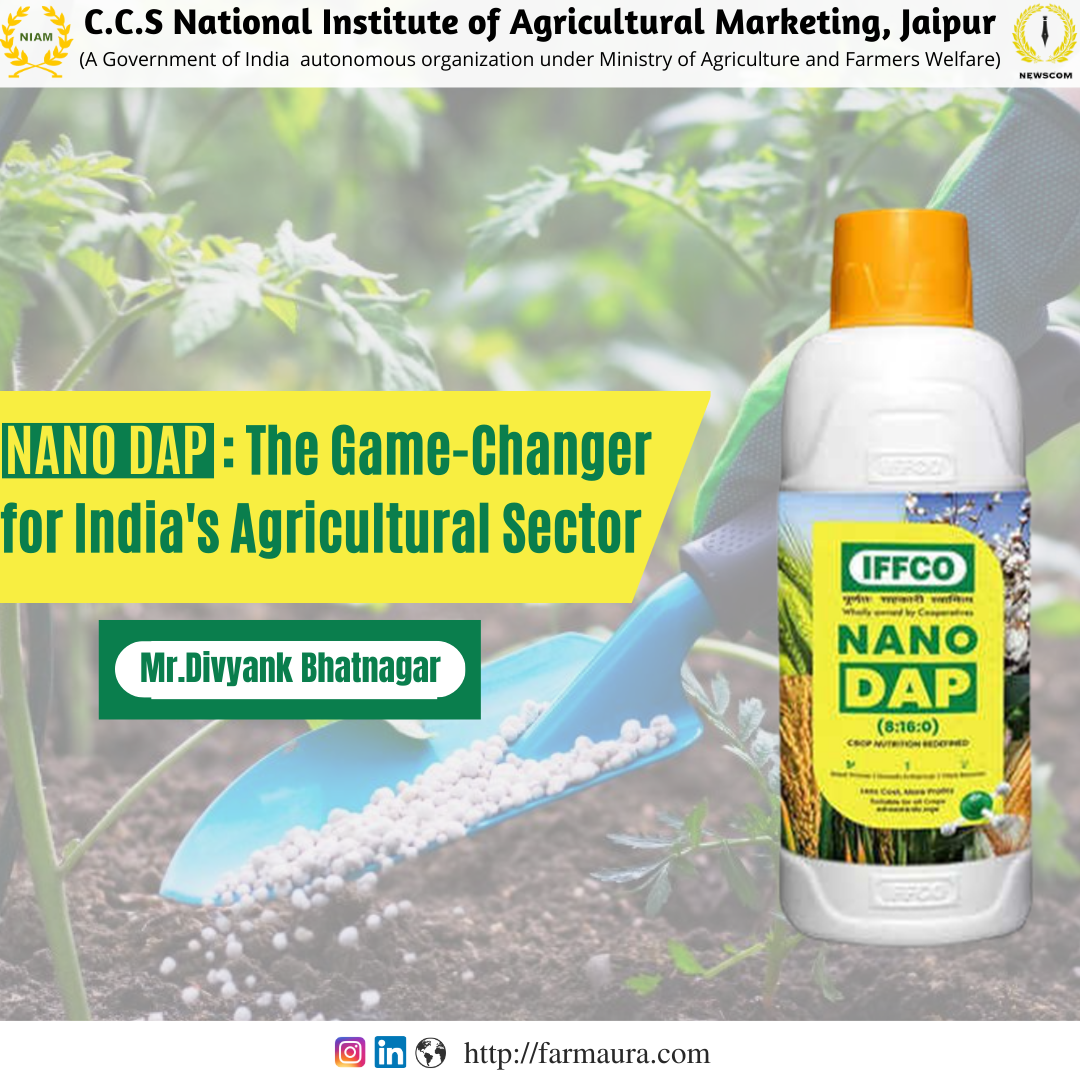With a growing population and shrinking arable land, India faces the daunting task of producing more food with fewer resources. Nano DAP (Di-ammonium Phosphate), a cutting-edge fertilizer developed by IFFCO in collaboration with Coromandel International Limited promises to boost crop yields while reducing the environmental impact of farming. This article delves into the science behind Nano DAP and its potential to revolutionize Indian agriculture.
Agriculture is the backbone of India’s economy, employing millions of people and contributing significantly to the country’s GDP. However, traditional farming practices have led to the overuse of fertilizers and depletion of soil nutrients, resulting in reduced crop yield and quality. To address this issue, Indian Farmers Fertiliser Cooperative Limited (IFFCO), one of the largest cooperative societies in the world, has been at the forefront of promoting sustainable agriculture in India and has recently launched its product – IFFCO Nano DAP – to help farmers improve their crop yields while reducing fertilizer usage and protecting the environment.
Nano DAP is a nanotechnology-based fertilizer developed using a unique process that involves the transformation of conventional DAP fertilizer into nanoparticles. The nanoparticles are then coated with a specially designed polymer that enhances their stability and nutrient-release properties. The resulting fertilizer has several unique properties that make it different from conventional fertilizers. The small size of the nanoparticles enhances their solubility and nutrient absorption properties, allowing for improved nutrient uptake by plants. Additionally, the nanoparticles have a high surface area to volume ratio, which increases the contact surface between the fertilizer particles and plant roots, further improving nutrient absorption and uptake.
In November 2020, IFFCO signed a Memorandum of Understanding (MoU) with the Indian Institute of Technology (IIT) Bombay to produce Nano DAP fertilizer using the institute’s technology. IFFCO plans to set up a production facility for Nano DAP fertilizer at its Kalol plant in Gujarat, with a production capacity of up to 50,000 metric tonnes per year. The company aims to make Nano Nutrient available to farmers across India, with a focus on increasing crop yields, reducing fertilizer consumption, and more importantly bringing down India’s fertilizer import bill. In collaboration with the International Advanced Research Centre for Powder Metallurgy and New Materials (ARCI), Coromandel International Limited has developed its version of Nano DAP fertilizer, called “Nano Power.” The product has been tested successfully in field trials, showing an increase in crop yield by 10-15% compared to traditional DAP fertilizers. Coromandel plans to introduce Nano Power in the Indian market in the upcoming kharif season.
According to recent statistics, the price of Nano DAP fertilizer is higher than traditional DAP fertilizers, but its efficiency and cost-effectiveness make it a worthwhile investment. The price of Nano Nutrient, produced by IFFCO, is currently around INR 2,000-2,500 per 50-kg bag, while the price of Nano Power, produced by Coromandel, is expected to be around INR 2,500 per 50-kg bag. Liquid Nano-DAP will be sold at Rs 600 per bottle of 500 ml. A single bottle will be equal to one bag of DAP, which costs Rs 1,350 at the moment.
The development and commercialization of Nano DAP fertilizer by IFFCO and Coromandel mark a significant milestone in the Indian fertilizer industry. The application of nanotechnology in fertilizer production represents a new frontier in improving fertilizer efficiency and reducing environmental impacts. With the growing awareness of the need for sustainable agriculture and the increasing demand for high-quality food, Nano DAP fertilizer has the potential to transform the Indian agricultural sector. The collaboration between IFFCO and Coromandel sets an example for the industry, showing how partnerships can drive innovation and address the challenges faced by the sector.




